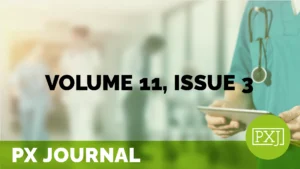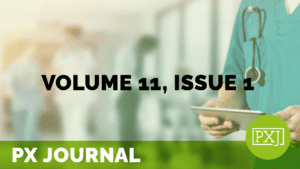PX Chat on PFA/PFACS: Sustaining/Growing

12pm ET / 11am CT / 10am MT / 9am PT – Join The Beryl Institute community for an opportunity to connect with your peers on the support and resources needed to address efforts around sustaining and growing PFAs and PFACs in their organizations. Breakout discussion groups allow you to share your challenges, celebrate your successes, and discover what other organizations are doing.
Inspired by the work of The Beryl Institute GPFAB, PXPF Patient & Family Partnership Workgroup, and sparked by community PX chats, a series of monthly PX Chats focused on various stages of the PFA/PFAC engagement have been scheduled.
PX Chats are a member benefit. This event does not offer patient experience continuing education credit (PXE).
Related content
-
 Culture & Leadership | Patient Family & Community Engagement
Culture & Leadership | Patient Family & Community EngagementNew Ways to Care
This webinar explores innovative models for best technical care, co-produced with patients and families, and also look at the impact that compassion and kindness can have on clinical outcomes, cost and patient experience. Maureen Bisognano, President Emerita and Senior Fellow, Institute for Healthcare Improvement Presentation slides *Headliner webinars are complimentary. Brought to you by:
Learn more -
 Patient Family & Community Engagement
Patient Family & Community EngagementAn Exploratory Qualitative Study of Perinatal Experiences in an Acute Setting during Early Phases of the COVID-19 Pandemic
The COVID-19 pandemic was highly disruptive for people delivering babies in-hospital and for obstetrical healthcare professionals. The purpose of this study was to explore the experiences of people with or without COVID-19 giving birth in a community-based hospital to provide patient insight to obstetrical care providers regarding the services/policies used during the pandemic. Nine interviews
Learn more -
 Patient Family & Community Engagement
Patient Family & Community EngagementLived Experiences of Cancer Patients Who Chose to Stop Receiving Treatment
The study aimed to understand the lived experience of cancer patients who abandon treatment. Four semi-structured interviews were conducted, and the data was examined using interpretative phenomenological analysis. It resulted in four superordinate themes: (i) ‘Lack of knowledge about cancer’ dealt with patients’ knowledge and perceptions about their cancer. (ii) ‘Hopelessness with oneself and God.’
Learn more
